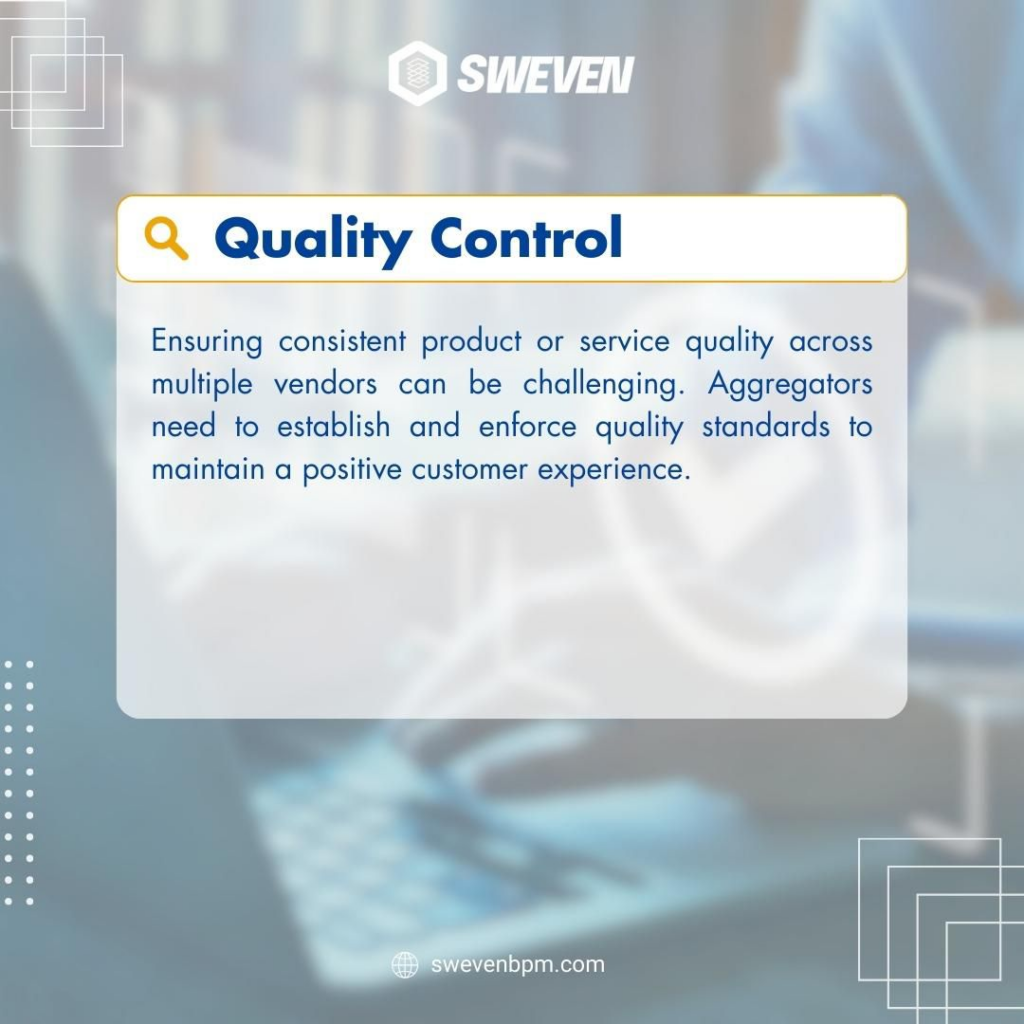In today’s competitive marketplace, maintaining consistent product or service quality across multiple vendors is a top priority for aggregators. Whether you’re running a platform connecting customers with various suppliers or managing a network of service providers, ensuring a uniform and high standard of quality is essential for a positive customer experience. In this blog post, we’ll explore the challenges of quality control in a multi-vendor environment and present a comprehensive solution to address these challenges effectively.

The Challenge of Consistency:
Aggregators face unique challenges when it comes to maintaining consistent quality. These challenges often include:
- Diverse Vendors: Working with multiple vendors, each with its own processes and standards, can make it difficult to establish a unified quality standard.
- Varying Capabilities: Vendors may have different levels of expertise and resources, which can result in variations in product or service quality.
- Customer Expectations: Customers expect a consistent experience, regardless of the vendor they choose. Any lapse in quality can tarnish your brand’s reputation.
The Solution: A Comprehensive Quality Control Framework
To overcome these challenges and ensure consistent quality, aggregators should implement a robust quality control framework. Here’s a step-by-step guide:
- Establish Clear and Standardized Quality Standards: Start by defining clear and standardized quality standards that all vendors must adhere to. These standards should be specific, measurable, and aligned with customer expectations. Consider involving vendors in the process to ensure buy-in and clarity.
- Regular Audits and Inspections: Conduct regular audits and inspections of vendor operations. These assessments should evaluate adherence to quality standards, safety protocols, and overall performance. Identify areas for improvement and provide constructive feedback.
- Guidelines and Training: Provide vendors with comprehensive guidelines and training materials. Ensure that all vendors are well-versed in your quality standards, procedures, and customer service expectations. Offer ongoing training to address evolving needs.
- Feedback and Performance Monitoring: Implement a feedback system that allows customers to provide input on their experiences. Additionally, collect data on vendor performance, track key quality metrics, and compare results against established benchmarks.
- Enforce Accountability: Hold vendors accountable for meeting quality standards. Establish consequences for repeated failures to ensure compliance. Conversely, recognize and reward vendors that consistently deliver high-quality products or services.
- Continuous Improvement: Foster a culture of continuous improvement among vendors. Encourage them to proactively identify opportunities for enhancement and innovation. Share best practices and success stories across your vendor network.
Benefits of Implementing a Quality Control Framework:
By actively enforcing these quality control measures, aggregators can enjoy several benefits:
- Consistent Customer Experience: Customers will have confidence in your platform, knowing they will receive a consistent and high-quality experience, regardless of the vendor they choose.
- Enhanced Reputation: A commitment to quality assurance can boost your brand’s reputation and customer trust, leading to increased loyalty and referrals.
- Reduced Risk: Minimize the risk of quality-related issues, such as returns, refunds, or negative reviews, by proactively addressing them through your control framework.
- Vendor Collaboration: Collaborative efforts to maintain quality can foster strong, long-term relationships with vendors, leading to mutual success.
Quality control in a multi-vendor environment is a complex but necessary endeavor for aggregators. By setting clear standards, conducting regular audits, providing guidance and training, and implementing a robust feedback system, aggregators can ensure consistent product or service quality across their vendor network. This commitment to quality not only benefits customers but also strengthens the aggregator’s brand and business in the long run.
















